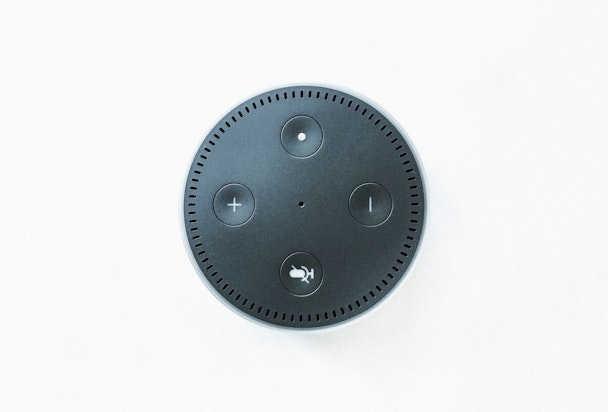A silent voice: why has Alexa failed to live up to marketers’ hopes?
Voice assistants promised the world: a new frontier for marketers, linking users with arrays of consumer tech. But on the news that Alexa is running a $10bn annual loss for Amazon, why has voice failed to take off?

Amazon bundled Alexa with many of its audio and Voice products - so why didn't she become a bigger part of marketing?
Alexa has become shorthand for voice assistants. Bundled as it is with Amazon’s home audio products, the assistant has become anthropomorphized, often referred to as ‘her’. In its rush to increase its functionality, Amazon rolled out development kits and tools to a wide audience, allowing publishers and brands to launch their own voice apps.
The promise to those brands was that voice was the next great leap in consumer interaction. In 2018, Amazon's country manager for India even argued that voice would “bring the next billion online”. But as Amazon’s latest results make plain, that promise has failed to materialize.
As those financial results have made clear, voice has failed to create a regular revenue stream of any note.
Dr. Timo Kunz is chief exec and co-founder of the startup Aflorithmic, which creates AI-generated audio ads. He explains: “The strength of voice assistants are in their interactive capabilities.
“However, audio ads targeted to smart speaker listeners have yet to become ‘a thing’ because even though voice assistants like Alexa have been in the market for more than 5 years, the tech giants have only recently implemented the means for users to truly interact with audio ads.
“Interactive audio ads are not here to replace the traditional audio formats that we are used to. The two are likely to complement each other in the future, with passive audio ads to continue to help brands to be remembered, coupled with the interactivity of the ads on voice assistants for immediate buying options.”
And while other voice products are sold at cost or even for profit, Bloomberg reports that Amazon Echo home devices are in fact sold for a loss. That suggests that the company intended (or intends) for the device to be a loss leader and support its other products, including advertising.
However, as a number of analysts have made clear, it was in part that wide roll-out of skills that proved the limitations of the assistant. Analyst Alexander Aciman states that community-made tools are finicky and over-reliant on very specific queries: “[it's] the greatest clock radio ever made. Nothing more. This much becomes apparent if I grow overzealous and put forth a slightly complicated search query.”
The brand angle
Many brands experimented with voice tools, and achieved some measure of success. McDonald’s used the app as the start of a purchase funnel, but also used it to launch a new way to apply for jobs in restaurants. In 2017 Domino’s Pizza used a ‘six little words’ campaign to launch a 'skill' on Alexa that also began the process to purchase. Just Eat, Starbucks, and other delivery services have followed suit.
It speaks to the limited nature of possible brand interactions on Alexa, which possibly explains why tech companies aren’t sharing those stats as readily as they once did.
Even Google is sunsetting its Conversational Actions tool, which allows users to create custom experiences or conversations for Google Assistant users, by June 2023.
Amazon's financial results show that Alexa is set to cost the company’s worldwide digital unit around $3bn in this quarter alone. It expects to take a $10bn loss for the year.
It seems Amazon (and its burgeoning ads business) failed to take into account the sort of products that consumers will purchase through audio ads alone. The tool, which integrates with other Amazon products, is perfectly capable of repurchasing FMCGs. In fact, in 2019 when Amazon discontinued its Dash button service, its comms to existing consumers stated that ordering through Alexa was its natural successor.
But while Amazon might not be making much ad money directly from Alexa, there have been indications that it is serving a purpose when it comes to informing its other products, and in setting it up for the future of e-commerce.
Naji El-Arifi, head of innovation at Wunderman Thompson Commerce, explains: “While there is a general view that voice assistants and particularly Alexa have not been successful in the commerce world, we have to understand the adoption cycle. Be they for commerce or not, voice assistants are now prevalent throughout many households.
"The proliferation of devices (albeit mostly used as speakers) is a great example of owning the interface. Because as we’ve said before, if you own the interface, you own the customer. If you own the customer, you own the data. If you own the data, you own the future. So, when consumers are finally ready to order with voice, will they turn to a new supplier? Or will they use the Alexa device that they’ve spent years interacting with? And when they do, there is one company in particular that stands to win.”
Advertisement
But for Alexa to survive that long, it needs to ride out the most common pitfall for new tech: disinterest from the company. Amazon’s founder Jeff Bezos reportedly lost interest in the project in 2020, and by all accounts new CEO Andy Jassy is less protective of Alexa.
It speaks to a format that is still finding its feet, with basic use cases that add little to the consumer journey (and maybe even less to parent companies' bottom lines). But it is too early to write Alexa, and voice in general, off entirely.

